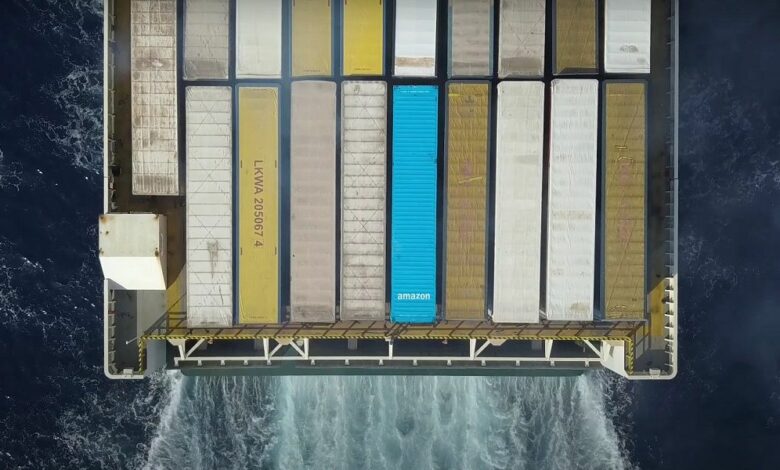Amazon becomes a founding member of the Zero Emission Maritime Buyers Alliance

Amazon, clothing firm Patagonia and German coffee chain Tchibo have founded the Zero Emission Maritime Buyers Alliance (ZEMBA) along with non-profit organisation the Aspen Institute, and are seeking other freight buyers to come onboard.
The alliance is part of the Cargo Owners for Zero Emissions Vessels (coZEV) initiative and aims to enable companies to access zero-emission shipping solutions that are not currently available.
“Through ZEMBA, freight buyers will accelerate the commercial deployment of zero-emission shipping, enable economies of scale, and help minimise maritime emissions. By working together, ZEMBA members will offer committed demand to build confidence among investors, carriers, ship owners, and producers of zero-emission fuels and renewable energy,” a release stated.
ZEMBA plans to issue a request for proposal (RfP) in 2023 to forward procure maritime shipping services that achieve zero or near-zero emissions on a lifecycle basis, for all greenhouse gases, not limited to carbon dioxide. The delivery of these services will be expected to start in 2025 or 2026. As ZEMBA membership grows in the coming years, ZEMBA plans to run similar tenders with larger volumes of demand until zero-emission shipping becomes mainstream in the industry.
“Removing the climate impact of hard-to-abate sectors, such as maritime shipping, requires continuous collaboration, investment, and innovation – which is why we joined ZEMBA,” said Kara Hurst, vice president of worldwide sustainability at Amazon. “Through ZEMBA, we are taking important steps forward together with other cargo owners to unblock challenges, accelerate solutions, and create the demand needed to decarbonise maritime shipping and support a clean energy transition.”
“Tchibo is on a great path to achieve our own emission targets by 2030,” said Werner Weber, CEO of Tchibo, “but for Scope 3, we need scalable solutions now. Supporting ZEMBA gives us the opportunity to address the emissions from our logistics, which represent approximately 13% of our overall footprint. The entire maritime value chain, including cargo owners like Tchibo, has to demonstrate leadership in creating a decarbonised maritime sector. ZEMBA represents an actionable pathway to join forces with other cargo owners to lower and eventually eliminate our Scope 3 emissions from maritime.”

This is a good move. Why just focus on the maritime component of a transit in this initiative. Road freight is the major contributor to emissions/particulates on the landside element. There is a real risk of silo thinking pervading again.
Why not just go back to sailing ships? But would the need for cotton sails cause more climate trauma?